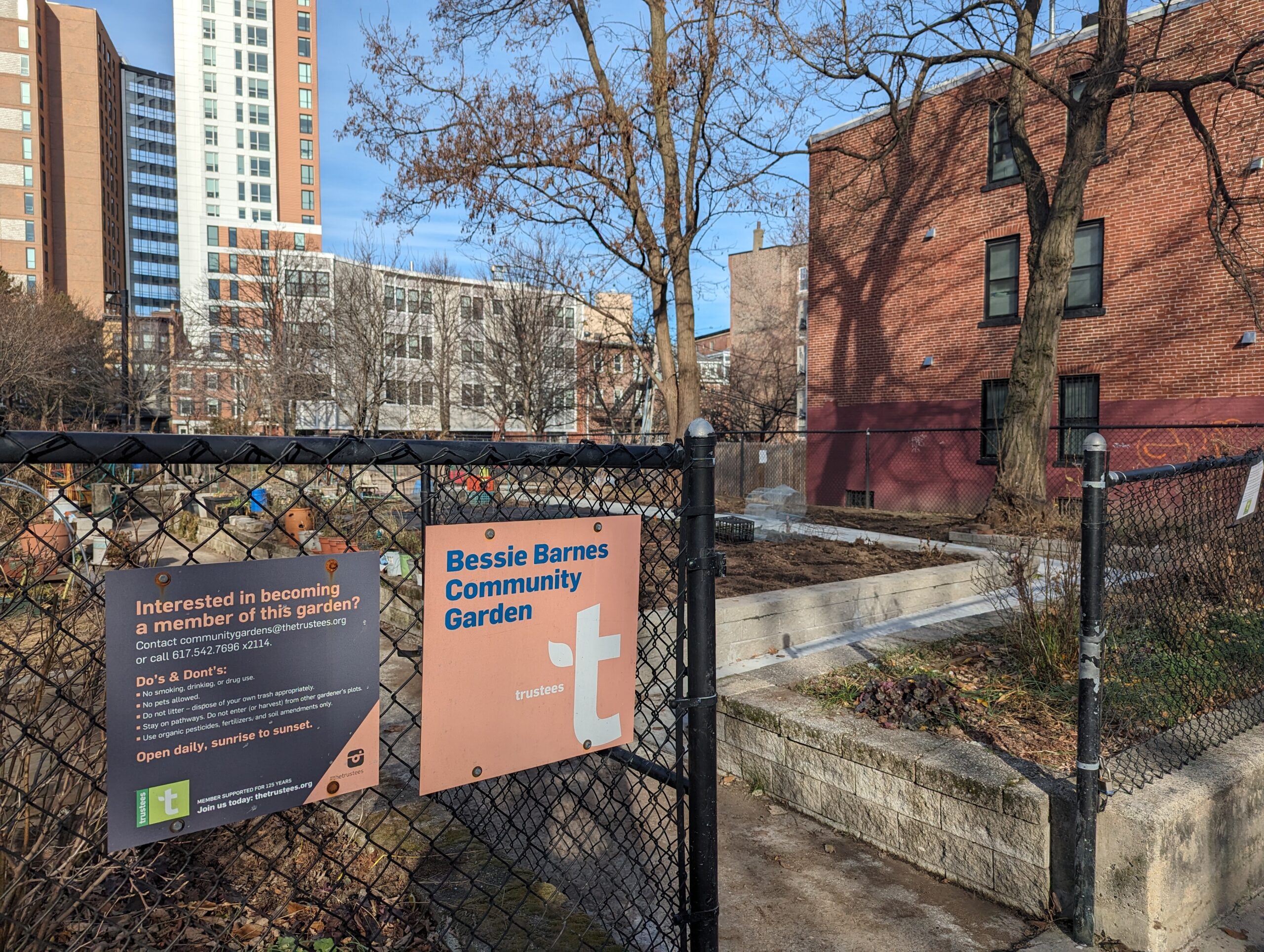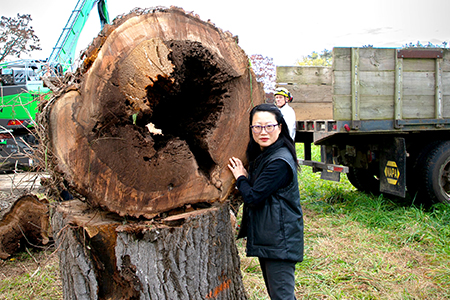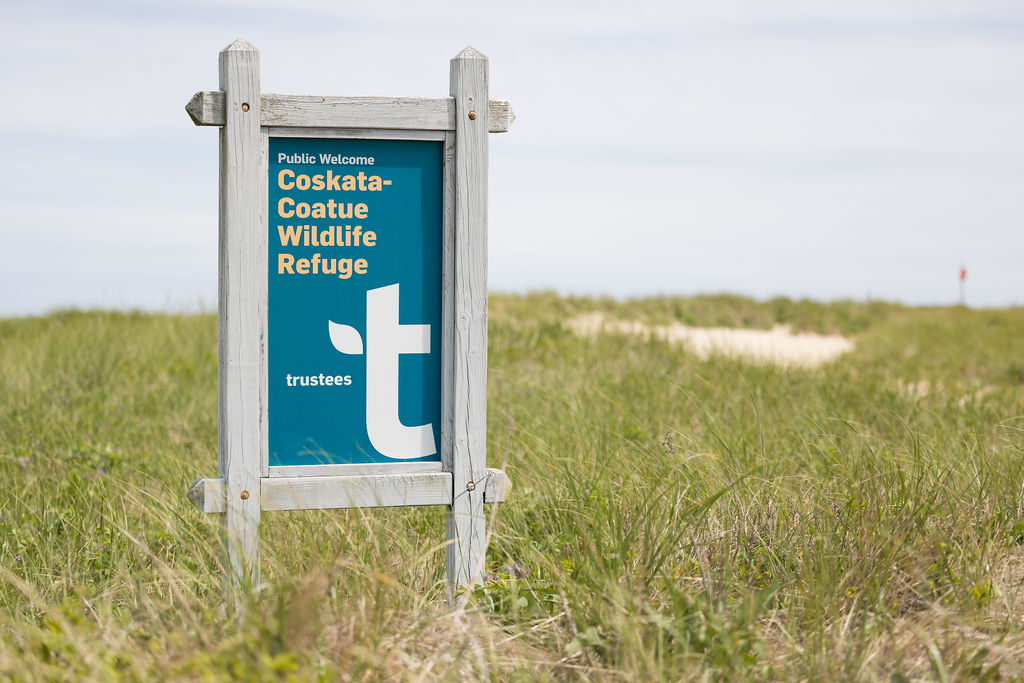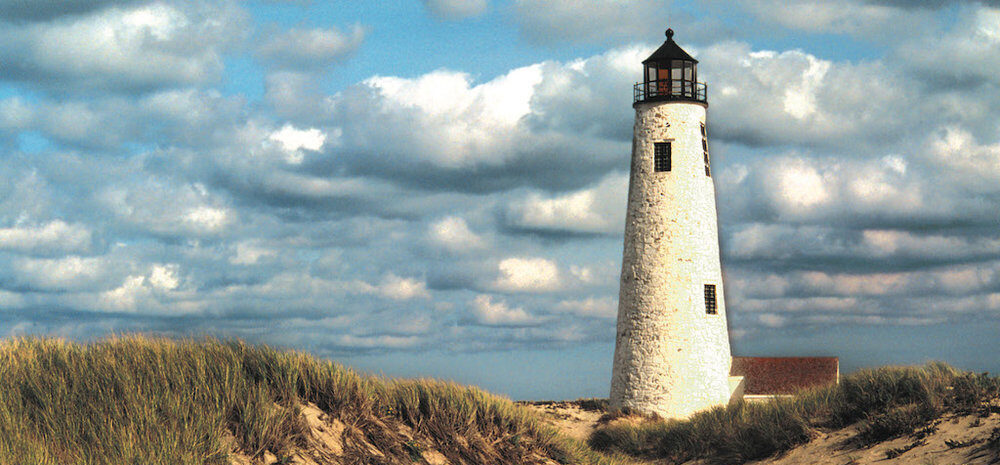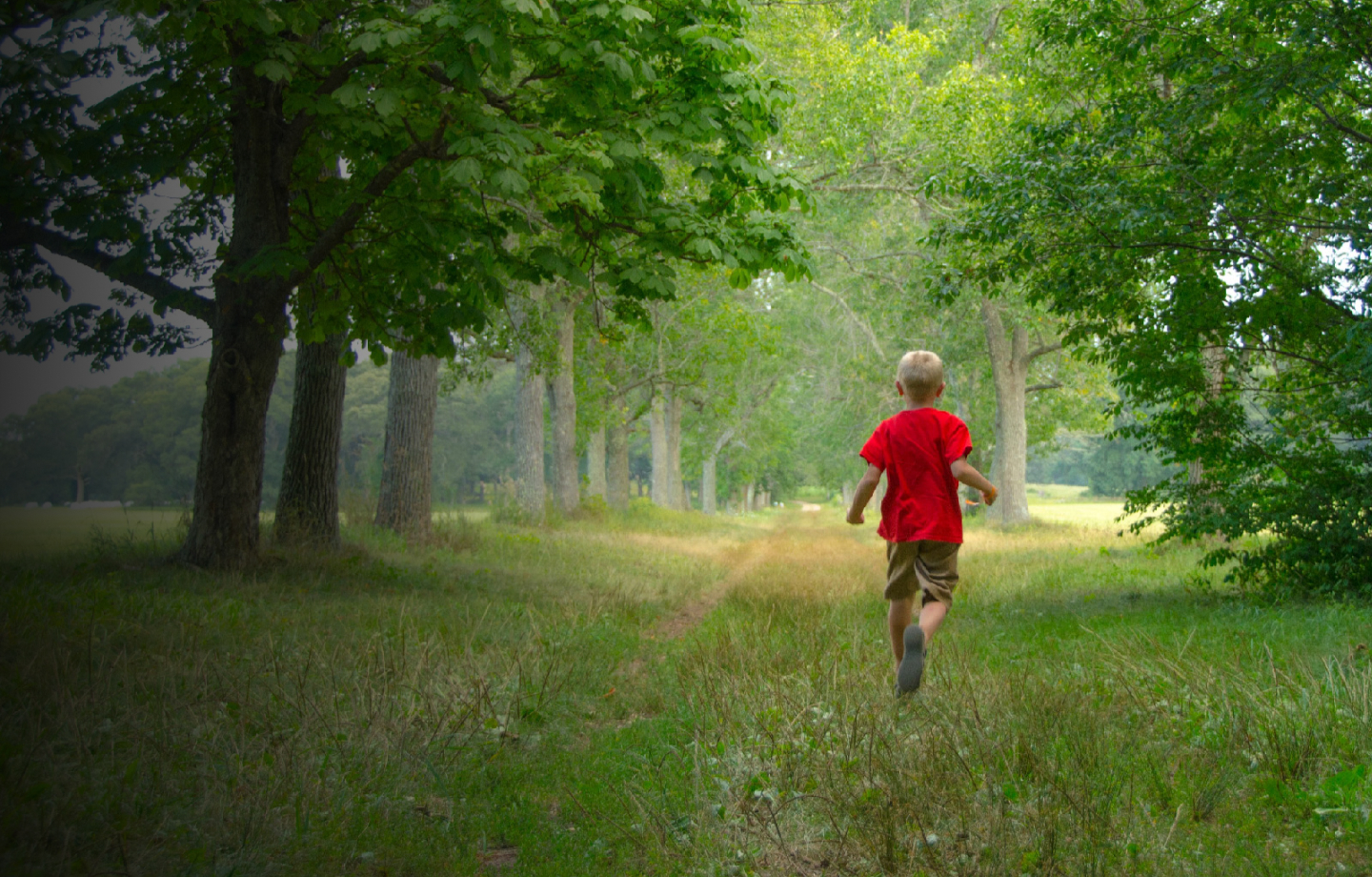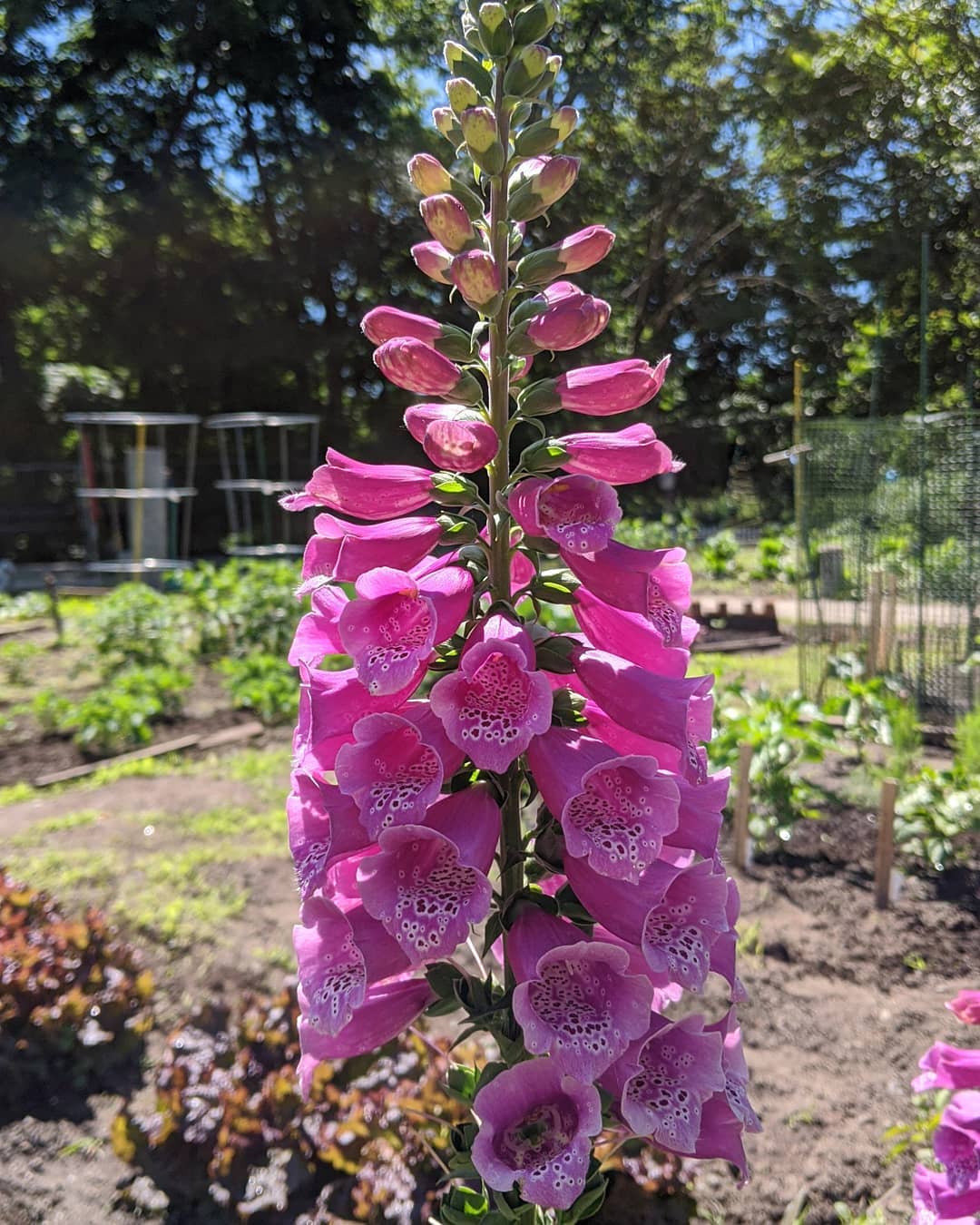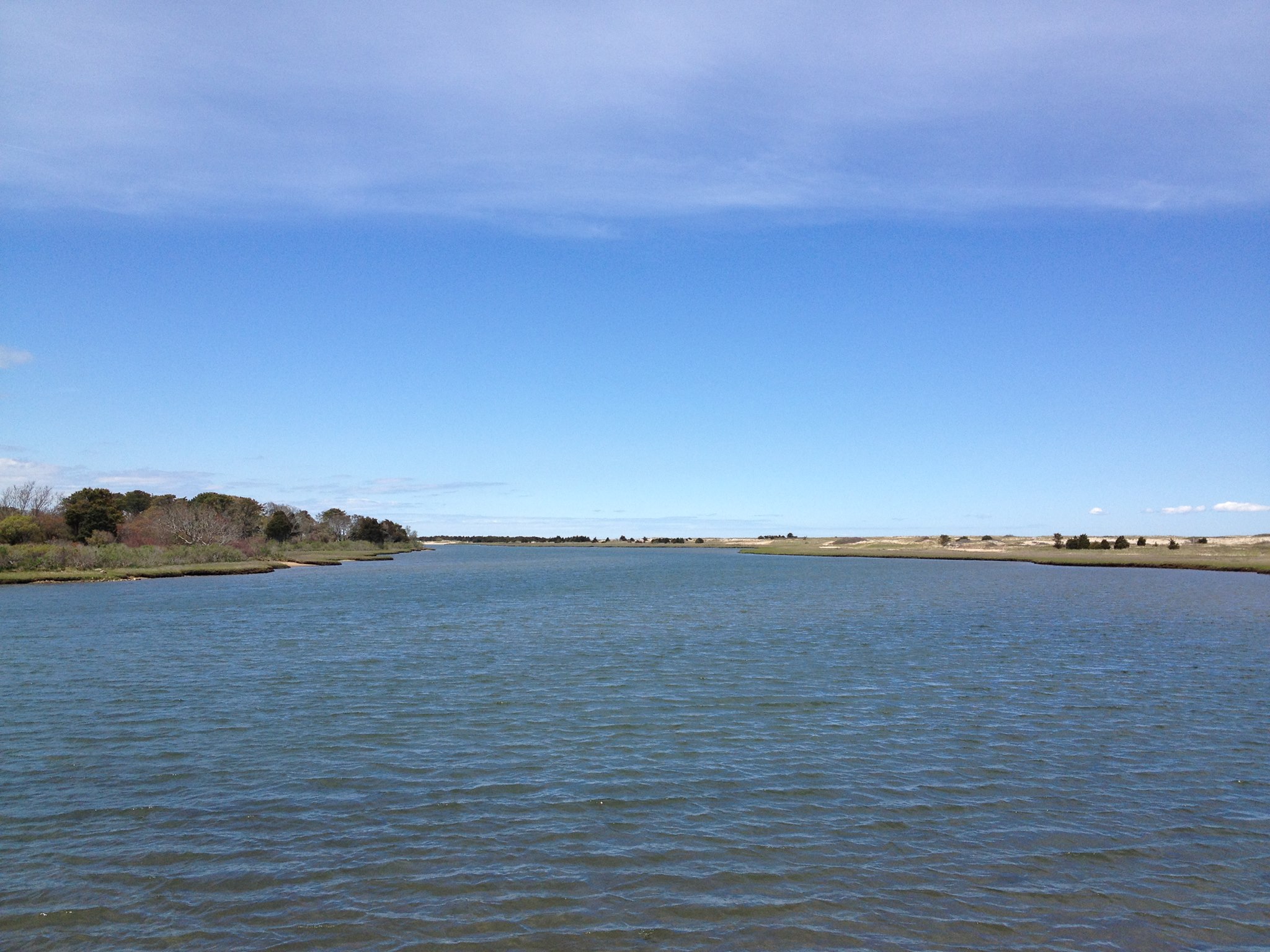Lower Roxbury community garden receives accessibility improvements
The Trustees manages 56 community gardens across eight Boston neighborhoods—gardens which are tended and cared for by volunteer residents and which provide a sense of connection and inspire joy in the shared work of growing fresh, healthy food. Recently one of the Trustees’ ten gardens in Roxbury, Bessie Barnes Community Garden, received a series of improvements aimed at better accessibility for all. Previously, gardeners would have to step over a nearly 2-ft high retaining wall to get into and tend their plots, making access extremely difficult for many, especially for the growing number of senior gardeners. This fall, after the harvest season ended, the Trustees’ statewide and community garden stewardship team installed two ramps to improve access at this beloved garden as part of the organization’s ongoing commitment to accessibility. Trustees extends many thanks to TD Bank for supporting this gardening community.
Trustees Commissions Jean Shin for New Installation at Appleton Farms
The Trustees is pleased to announce the latest installation in its Art & the Landscape initiative—a new work created for the historic landscapes of Appleton Farms in Hamilton and Ipswich by Brooklyn, NY-based artist Jean Shin. Shin’s Perch, opening in April, highlights the Trustees’ agroecological efforts, which support biodiverse species within the bounds of modern agricultural practices at its farms. Centering on bobolinks—migrating songbirds that rely on the farm’s grasslands and hayfields as nesting sites—Perch is intended to visualize, amplify, and raise awareness around this critical species and its habitat in addition to the agroecological endeavors at Appleton Farms. Conversations with Trustees staff led Shin to discover these healthy and most forward-leaning practices, which align the agricultural, ecological, and stewardship needs of Trustees farms, and which see pasturelands and open lands as the same.
Jean Shin (b. 1971, Seoul, Korea) is known for her expansive sculptures and installations confronting societal and ecological challenges. She salvages and transforms discarded objects—from mobile phones and discarded commercial leather, to Mountain Dew soda bottles—into potent monuments that interrogate our complex relationship between material consumption, collective identity, and community engagement. For Perch, Shin is salvaging fallen trees and discarded or remnant fencing and roofing materials at the farm to create perches for bobolinks to watch over their territories and nests in the farm’s grassland habitats. Viewing stands are also being crafted so visitors can observe the perches—which will be placed at multiple locations throughout the Appleton Farms landscape—from a safe vantage point. Perch opens to the public on Earth Day, Monday, April 22, 2024. Further information on the installation and related programming will be made available in early spring.
Grant Supports Beach and Saltmarsh Resilience on the Islands
The Trustees was recently awarded a $380,000 grant by the National Fish and Wildlife Foundation (NFWF) to support the Building Beach and Saltmarsh Resilience to Protect Island Communities in Massachusetts project—a partnership between The Trustees, Nantucket Conservation Foundation, and the Martha’s Vineyard Land Bank Commission. Specifically, the grant will support preliminary design work for barrier beach resilience work at Coskata-Coatue Wildlife Refuge on Nantucket and for salt marsh restoration and resilience efforts on Martha’s Vineyard’s Chappaquiddick Island.
On Nantucket, the NFWF funds will support feasibility and preliminary design work to address two vulnerable locations along the Coskata-Coatue Wildlife Refuge, a long narrow barrier beach system that creates Nantucket Harbor and provides protection to the town from intense storms. This past summer, The Trustees in partnership with Nantucket Conservation Foundation premiered a short-film about the impacts of climate change on Nantucket—Coskata-Coatue: A Refuge on the Edge—which provides an overview of the issues facing the Refuge and is now available on YouTube.
On Martha’s Vineyard, a feasibility study and preliminary design will be developed to restore the saltmarsh around Poucha Pond and on the bay side of the Cape Poge Wildlife Refuge on Chappaquiddick Island. Much of this marsh was historically used for farming purposes, leading to man-made changes to the hydrology of the marsh. The design will include techniques such as ditch remediation or “healing,” as well as other techniques currently being used in the Trustees’ Great Marsh restoration work on the North Shore, to improve the marsh’s ability to naturally build elevation in order to keep up with sea level rise.
